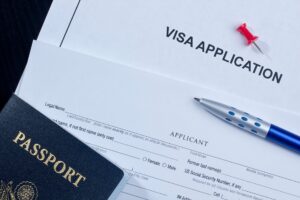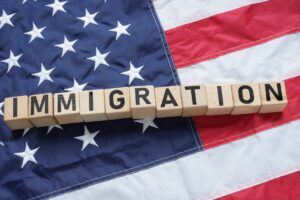At US-ILC, we listen, we care, we deliver: Let our 89 years of combined experience help you to navigate the complexities of immigration law.
One of the most straightforward ways for a foreign national to become a U.S. citizen has traditionally been through military service. However, the United States Citizenship and Immigration Services (USCIS) has recently made the citizenship process more difficult for noncitizens serving in the U.S. military.
The New Policy Guidance for Becoming a U.S. Citizen Through Military Service
USCIS recently issued new policy guidance for foreign nationals serving in the U.S. military, stating that an “uncharacterized discharge” occurring on or after August 1, 2024, will no longer be treated as an honorable discharge for purposes of military naturalization. The process will now be more selective, and only noncitizen service members who separate from the military under clearly honorable conditions will be eligible to apply for U.S. citizenship based on their service. Under the updated policy, veterans and service members discharged under uncharacterized or ambiguous conditions will no longer qualify for citizenship through military service.
USCIS also revised its policy allowing certain foreign national veterans to take their oath of allegiance at ports of entry as a matter of convenience. The agency previously coordinated with the Department of Defense to conduct such ceremonies at ports of entry. Under the new guidance, USCIS will no longer permit these veterans to take their oaths at ports of entry; instead, all oath ceremonies will be conducted at designated USCIS field offices within the United States.
What Is an Uncharacterized Discharge?
An uncharacterized discharge occurs when military personnel separate from the armed forces before completing 180 days of service. This typically happens shortly after enlistment or during basic training. Medical conditions, injuries, or performance issues may result in an uncharacterized discharge. This type of discharge is not considered honorable nor dishonorable, as it involves separation before the individual’s performance can be fully evaluated. Noncitizens who leave the service under an uncharacterized discharge may still qualify for certain veteran benefits based on their military service, but they are no longer eligible for naturalization through military service.
What Does the New Process Entail?
Noncitizens stationed outside the United States who are applying for citizenship through military service must now obtain parole or a visa to physically enter the country and be sworn in as citizens. Those who have separated from the military must ensure that their discharge was clearly honorable before applying for U.S. citizenship. These changes mean that expedited naturalization pathways for military service will now largely depend on the applicant’s discharge status and their physical presence in the United States for required USCIS appointments.
If the less than honorable condition was due to a noncompliance with COVID vaccination requirements, the updated policy will allow veterans filing for citizenship to request a change in the “characterization of their discharge.”
If you are interested in learning more about the new naturalization guidance for noncitizen service members, or if you have questions regarding another immigration matter, contact U.S. Immigration Law Counsel for a strategy session to discuss your case.




